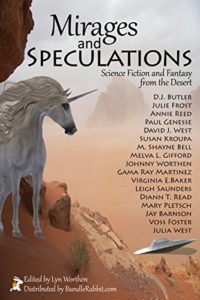Seen through almost any metric I can imagine, 2017 was my most successful writing year yet. Any metric that does not include revenue, anyway.
I started this year by sending my novel Under Everest off to my editor. Written in the last half of 2016, Under Everest was the first novel that I wrote with an intent to publish. At the time I thought I would self-publish the book sometime later in the year, with the hopes of releasing more books in the series in the future. Most of 2017 was to be spent writing books outside the series, with the hopes of publishing one later in the year.
Like many plans, that one changed.
Once I spoke with some of my self-publishing peers at 2017’s Superstars of Writing Conference in Colorado, it became clear that I needed to expand the Everest story into a trilogy. I retargetted my launch window for 2018, now with the intention of releasing all three Everest books in that year.
Of course, that left me with two Everest books to outline and write. I’d never done more than one book in a year. In fact, Under Everest was only the second full length novel I’d ever written. It really felt like I might be taking on more than I could handle.
Fortunately my house was being worked on immediately after Superstars, which landed me in a hotel for several weeks. During that time I plotted out books 2 and 3 of my new series in one long effort. Once my hotel stay was done, I was ready to start writing book 2.
Writing Seas of Everest
Once I started working on Book 2, titled ‘Seas of Everest’, I began to regret the decisions I made at the close of Under Everest. Specifically the decision to split my protagonists into two different areas, as it forced me to essentially write two separate stories. I decided to write one story to completion and then the other, leaving the task of weaving them together until both were complete.
In the end, working out how those stories would interrelate with each other was a very satisfying process and I was quite happy with the result. Just like Under Everest before it, when I completed Seas and send it off to my editor, I felt like I had accomplished more than I knew I was capable of.
Writing Dragons of Everest
Writing the third book in the series became an adventure unto itself. Hit with the possibility of having the same editor for all three books, I had to race and complete the first draft of the manuscript in 40 days. Little over a month to complete a 100,000 novel would require me to write at a pace I’d never done before, as well as push me to not skimp on all the epic moments a trilogy finale needs. All this while still untying plot knots and factoring in editor feedback from Books 1 and 2. As with the book before it, I ended up learning that I was capable of more as a writer than I thought. I completed the book on time, even with a few days to spare.In the end I was very happy with the final (first draft) product. At that time I thought that would be the last I would be writing of my Everest crew for some time.
The Fifth Interdictor
Once Dragons of Everest was off to the editor I took a month to finish an older novella of mine, The Fifth Interdictor. By the end of November I had sent that off to an editor as well, which will leave me with four books that I can publish next year.
Looking forward to 2018
Again consulting with my friends in self-publishing, it became clear to me that my best path for writing in 2018 was to continue inside the Everest series. Fortunately it is a world filled with characters I love and a lot of untapped story potential. I am excited to see what the results will be next year as I attempt to double my 2017 output and produce four more novels in the series.
In Conclusion
I could not be more proud of my output in 2017. Not only did I produce two novels and a novella, I learned new ways to outline, new methods for setting up scenes and chapters and completely reinvented my writing process along the way. I very happy with the quality and content of the work and am excited to look forward to 2018 when these characters can finally meet the world.
 Setting is a crucial part of storytelling. Setting affects the story in many ways. What challenges do the protagonists face from nature and their environment? How has the landscape shaped the culture of the people who live there?
Setting is a crucial part of storytelling. Setting affects the story in many ways. What challenges do the protagonists face from nature and their environment? How has the landscape shaped the culture of the people who live there?